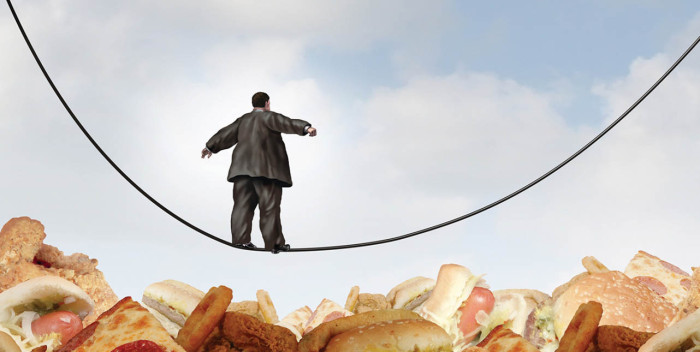Food addiction
It's hard to believe, but food can be so dangerous that experts compare the harm from eating it to alcohol and drug addiction. Sometimes food remains the only source of pleasure, the "patient" absorbs it in huge quantities, constantly thinks about lunch or dinner and cannot control his passion for tasty but harmful products. But there is another type of disorder - voluntary refusal to eat, anorexia. Improper nutrition invariably leads to health problems, and sometimes negatively affects your personal life. How to recognize food addiction in time and prevent the development of the disease?
Content
How to understand what food addiction is
We all know what we are like addiction to tobacco, alcohol and drugs. To recognize an eating disorder, you need to know it on the face.
Types of food addiction:
- Overeating- the most common type of food addiction. A person is not always able to understand in time that he has a problem, because at first the portions of food increase slightly, and then the amount of food absorbed exceeds all permissible norms, for this reason the weight is growing rapidly.
- Bulimia most often occurs in women or young girls. They are able to eat huge portions of food, knowing full well that they are not eating properly. Gradually, the stomach stretches and its involuntary emptying occurs, that is, vomiting. But it is not uncommon for people with bulimia to induce vomiting themselves so as not to gain excess weight.
- Anorexia is perhaps the most dangerous eating disorder, when a person significantly reduces portions of food, and then completely refuses to eat. Fasting leads to the fact that the patient can no longer eat normally, food makes him disgusted. Women with anorexia feel guilty after consuming their favorite foods, avoid places where they can be offered a treat, and their concept of beauty is invariably associated with critical thinness, so even if they are severely underweight, they do not notice it.
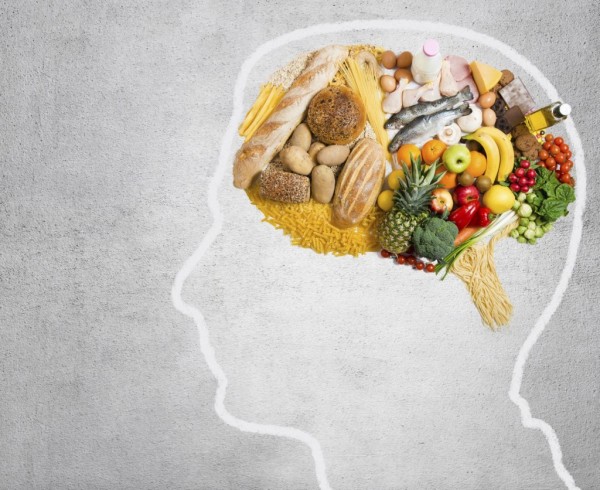
Food Addiction Symptoms:
- The amount of food consumed invariably increases when compared with the previous month or last year.
- At some point, a person no longer realizes that he is clearly “overdoing”, he eats until he becomes physically ill.
- Scientists have shown that addicted people feel psychological comfort in a well-fed state, but after an hour or two they have panic and anxiety. They cannot safely walk past the store, and they begin to print out their favorite delicacies right at the checkout or exit.
- The addict's head is constantly busy with thoughts about food, he spends a lot of time to buy it, cook and consume it, and there is less and less free time for other things.
- Attempts to cope with the disease on their own often fail, instead of appeasing their appetite and losing weight, people who have switched to proper nutrition become even more addicted.
- Sometimes even serious diseases such as obesity and diabetes, cannot stop people and force them to look at their eating behavior critically, meanwhile, these ailments are almost always closely related to food addiction.
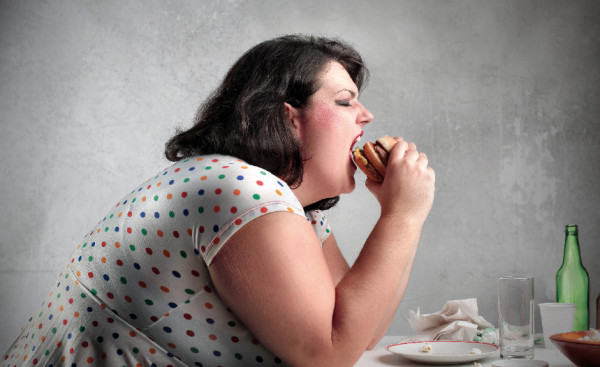
How food addiction occurs
We all have our favorite treats that we are ready to eat every day. Is it fair to say that most people are dependent on food? No, because this is a common addiction, and hunger makes us reach for the handle of the refrigerator, and not psychological problems, as in addicts. With the help of sweets, such a person wants to make up for the lack of positive in his life or get distracted from problems.
Most often, psychologists are faced with the following reasons for food addiction:
- Losses in life, divorce, dismissal, death of loved ones - these are the main factors influencing the "seizing".
- Filling the void, which at some point arose due to the lack of meaning in life and goals.
- Stress, depression, transitional states in adolescence, during pregnancy, etc.
These are not all the reasons for addiction, but they are united by one thing - food turns into the only source of joy, even the meaning of life. 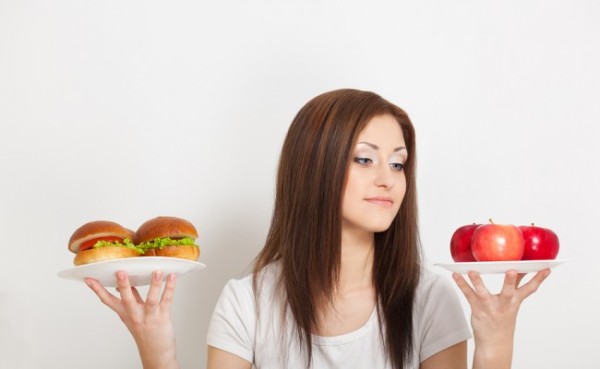
How to get rid of food addiction
Food addiction is a disease in which the addict can no longer independently control their addiction to their favorite food. Since the root of this problem is in the head, a person should first of all turn to a psychologist or psychotherapist, and only then to a nutritionist.
Here are some recommendations from specialists who, as a rule, come to the rescue at first:
- First you need to recognize that you already have a dependence on food, to determine the reasons for its occurrence. What factors influenced the fact that you wanted to escape from reality? This may be not only a deficit of positive emotions in your life, but also the presence of diseases that the body fights with, enjoying the next chocolate or burger.
- Nutritionists it is recommended to keep a special "food" diary, in which you will write down all the foods that you eat during the day. If most of them can be classified as harmful, think about the causes of addiction. Think about whether you can overcome it on your own, because you will need to constantly make efforts and give up your favorite delicacy for the sake of recovery. When you feel unbearable, try drinking a glass of lemon water.
- Water can be your main ally, be sure to drink at least two liters a day, especially before meals or during breakdowns.
- Analyze how you spend your day. Most obese people eat while watching TV or chatting on social networks, but you need to do it in silence so as not to be distracted by other activities.
- Revisit your refrigerator and clean up most of the junk food you're tempted to most, and avoid going to stores or departments where they are sold.
- In no case do not give up the goodies immediately and completely, this cannot be done, as a breakdown will surely follow. Rigid diets and hunger strikes with such a disease will not have an effect, but will lead to even more serious psychological trauma.
- Gradually replace the pleasure of eating with the pleasure of real communication with people. Look for ways to relieve anxiety and stress that don't involve eating too much.
- It is necessary to treat food addiction in a complex, in this case, sport should become an integral part of the daily routine, because during physical exertion, the hormone of joy is produced, you feel a surge of strength and vigor, leaving all the negativity behind.
- Ask for help from loved ones or find like-minded people who are also struggling with addiction, perhaps someone's example will inspire you to new exploits.
- Yoga, meditation, spa treatments and massages will help you relax and have fun.
- In some cases, your doctor will suggest medication for you. With the help of antidepressants, you artificially reduce your appetite and weight, but it can come back again, in addition, psychotropic drugs will not help if the main problem is not solved.
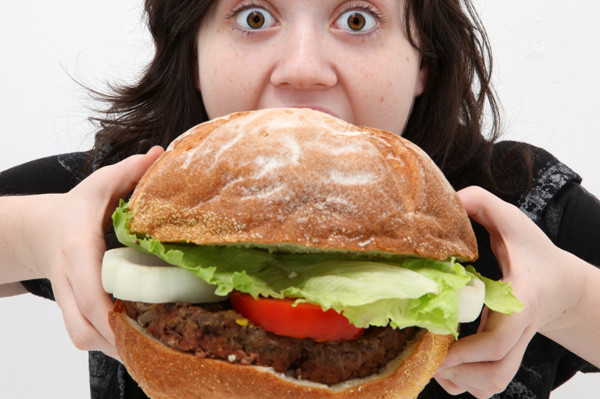
Prevention of food addiction
- Preventive measures are important at any age, but it is especially important to pay attention to food culture in the earliest childhood. You do not need to force children to finish eating everything that is in the plate or feed when the baby categorically refuses to eat and at the same time he is healthy.
- You cannot reward yourself with food for anything, let it be not a cake, but a trip or a trip to the cinema.
- Eat only in the kitchen or dining room, no need to bring cookies with you when watching TV or reading a book.
- Particular attention should be paid to tea drinking at the workplace, when the whole team is chewing something throughout the day - it will be more and more difficult to get rid of such habits over the years.
- Eat no more than 3-4 hours later; in between, you can afford a few nuts. But water or green tea without sugar can be drunk without restrictions.
- You do not need to completely give up your favorite foods, give him one day a week for a small portion.
- Do not try to drown out stress and emotional problems with food, it is better to relax in nature or hang out with people you like.
